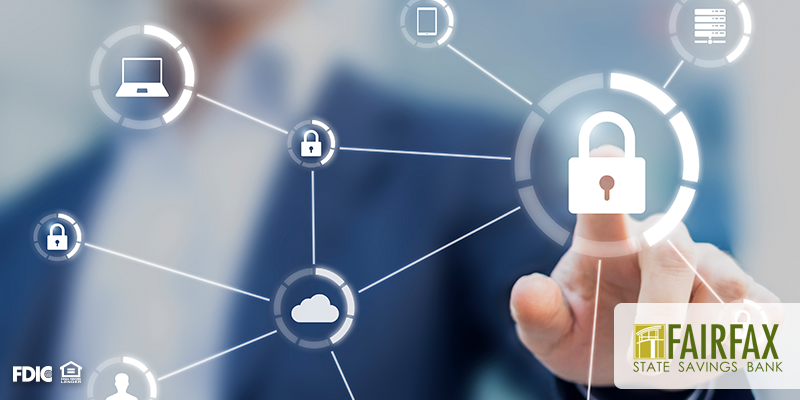How NOT to Get Hacked
Posted on | Categories: Cyber Security, Website

Every day you hear tips and tricks to ensuring the safety behind your personal information. While many of these offers and promotions are advertising a safety service, at Fairfax State Savings Bank, we believe you can handle the majority of these precautions yourself! See what steps you’ll need to take in order to best prepare for your financial future. We’ll be there to help you every step of the way.
DO: Store your passwords in a secure app like LastPass.
DON’T: Write your passwords on post-it’s which you keep around your desk.
Remembering your passwords is important, but leaving them unattended for hackers could be dangerous. Ensure you keep your details out of plain site by utilizing secure password storage apps such as LastPass or Dashlane. Not only will this help you forget your passwords less often, but it helps you create more complicated passwords to help keep unwanted hackers at bay.
DO: Use social media to connect with friends and family.
DON’T: Connect with people you don’t know or share personal account information.
Even though social media can be a great way to interact with people you know, many users become choose to become connected with individuals they’ve never met. If you find yourself with a friend request from someone you don’t recognize, always decline it, to keep you and your contact safe. If for some reason you’re unsure if you know the individual or not, you can always message them to see how you’re connected instead.
DO: Check your email thoroughly to ensure the email and links are a valid address.
DON’T: Click a suspicious link to malicious websites that can load malware on your computer.
If you end up getting an email from a sender you don’t recognize or remember signing up to receive emails from, think twice before opening or clicking on any link within the email. One click of the mouse and your computer could be infiltrated with malware. Malware is designed to damage or potentially disable your computer giving a hacker access to your personal information. Always be cautious and employ the use of malware and virus protection programs.
While these three strategies will help to keep your personal information safe, there are always new tips and tricks to learn! Check back on our blog each month to see how you can continue to improve your personal cyber security, courtesy of Fairfax State Savings Bank.
